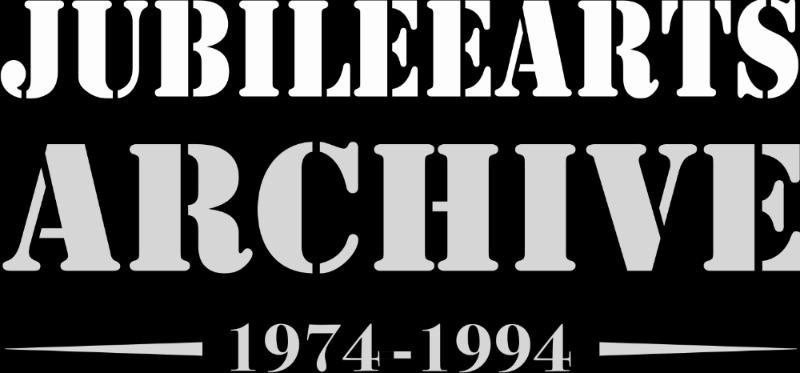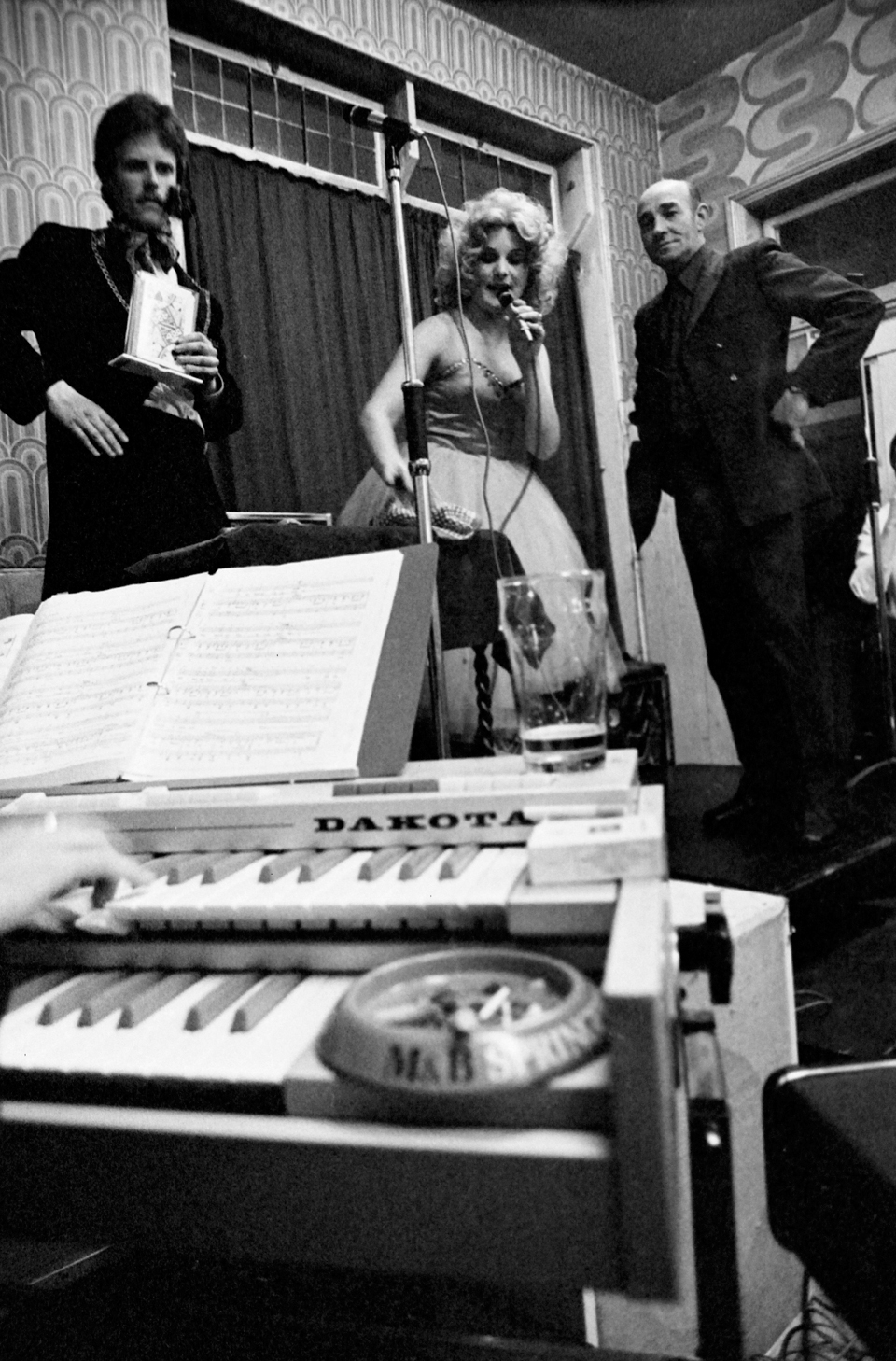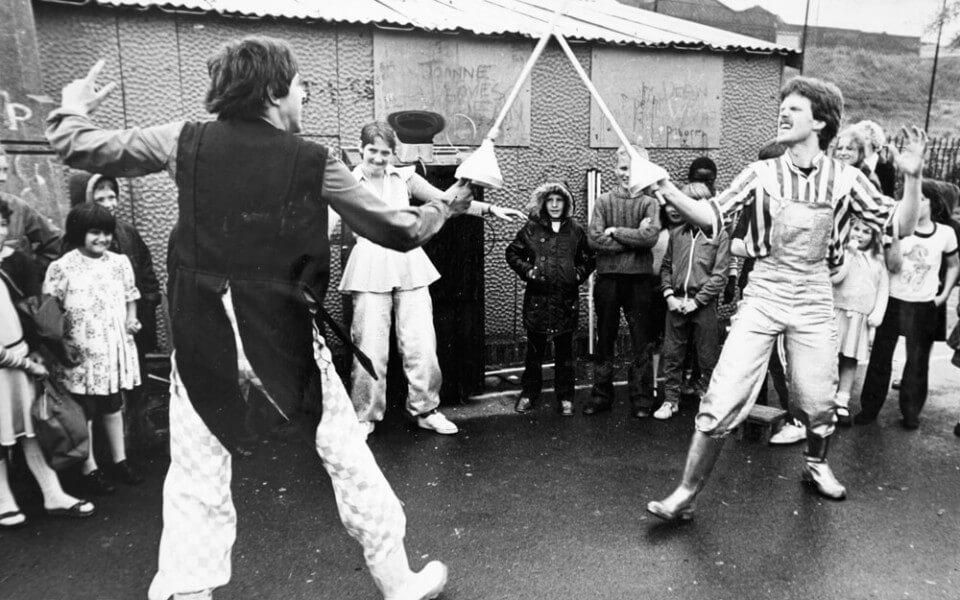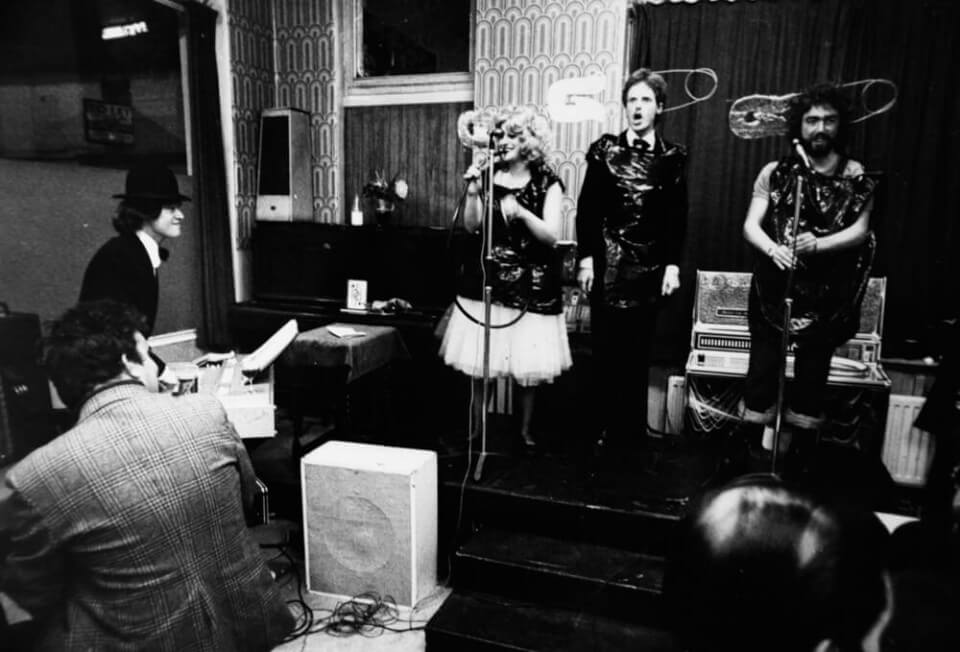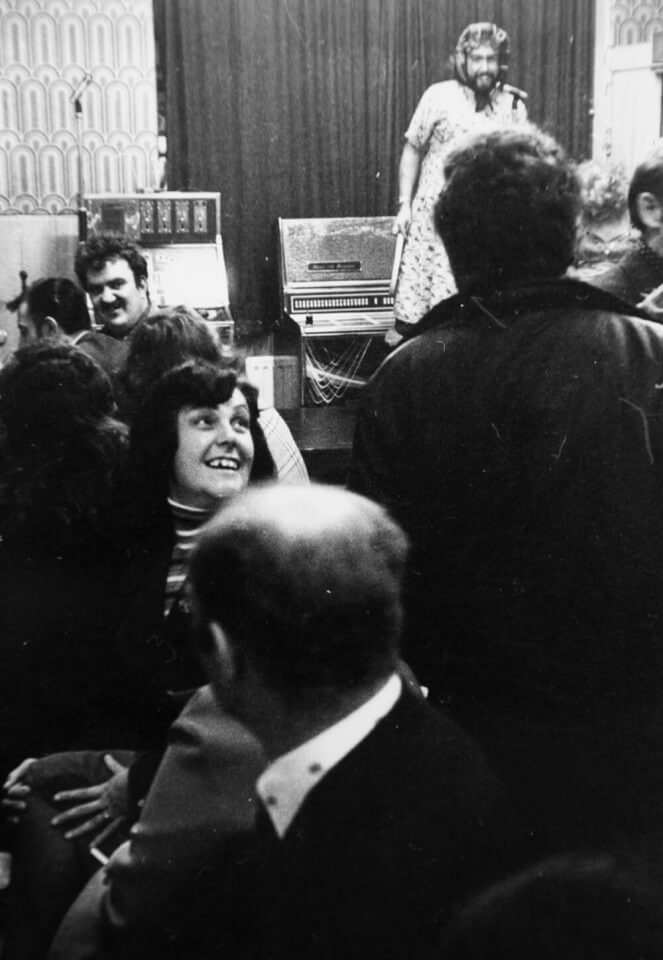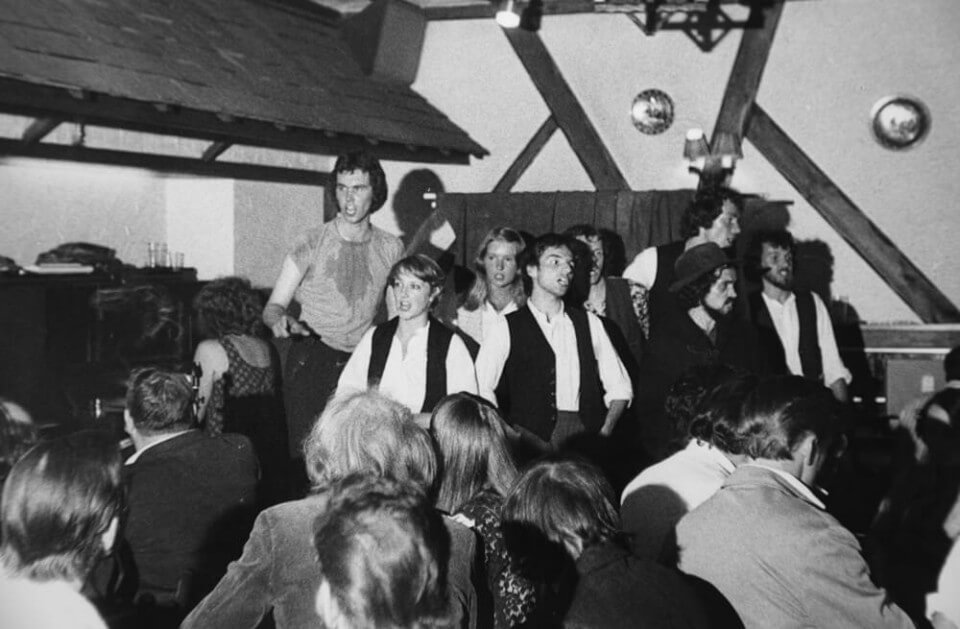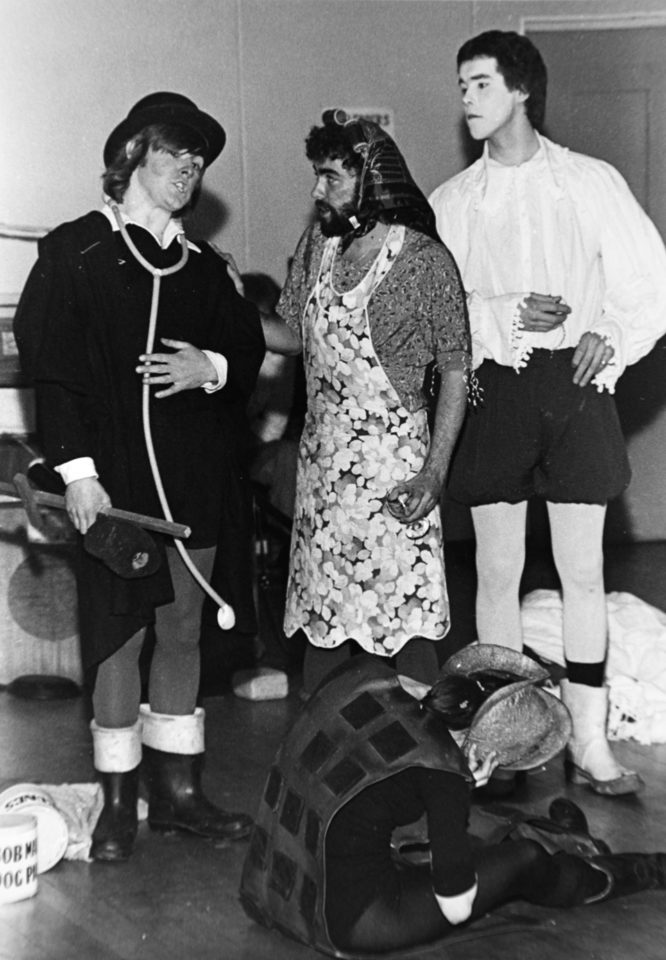The Limerick Inn, at the Market Place at Great Bridge, had been on the site since 1824. Today it operates as a restaurant, the market no longer on the doorstep. It had been a hotel at various times and throughout the 19th century was also used for coroner inquests, auctions, election campaigns and as a meeting place for the board of health. In 1861, it hosted Robert Hales, the Great Norfolk Giant, said to be seven feet six inches tall and the heaviest man in Europe, where the Birmingham Daily Post reported he would ‘hold his Court at the Above Inn, until Further Notice’. It was a popular venue for hosting meetings of workers – here you would find mill and hand sawyers and miners discussing strike action, ironworkers, puddlers, forge rollers and furnace men arguing for improved wages, colliers gathering ‘to further agitate in favour of the 9 hours movement’.
None of this prepared the clientele for the arrival of a pub show in July 1977 called ‘Would Jubilee’ve It?’ It was designed as a comedic magic variety show to be performed in pubs and clubs, running throughout that summer. The Express and Star newspaper proclaimed it to be ‘an hour of lunacy for old folk’. The day before Jubilee had performed at the Seven Stars in Cape Hill, Smethwick, and the day after they would be at The Cape Hotel on Sedgley Road West, Tipton.
At 9 pm the show opened with a lone musician with a violin, Chris Travers, dressed as if he had just stepped off the stage at the Conservatoire, who began to play what sounded like some esoteric classical piece. This had the effect of quietening the pub, grabbing the audience’s attention with the skill involved, as we would admire a clever juggler or a skilled craftsperson. He gradually began to play the same tune quicker and quicker, speeding it up until it is revealed as a joyful Irish reel, and at that point the rest of the cast entered the room.
The originators of Jubilee all came from a theatre and drama background. Here we have Steve Trow as the Master of Ceremonies, resplendent in a white tuxedo part working men’s club part Las Vegas), Malcolm Ratledge dressed in dungarees who played the company’s roadie and who later transforms into ‘The Lovely Fifi’ from Gornal, Sally Eldridge as a lounge singer in a blonde wig and a fancy silk dress, Martin Dennis in a formal dinner suit – who went on to be a TV Director, whose work included ‘Allo Allo’ and ‘Men Behaving Badly’. Tonight they perform their songs, with Chris Travers on keyboards, skits, stunts and magic tricks, with plenty of audience participation. At one point they don bin bags with giant safety pins through their heads, a nod to the Sex Pistols, who had crashed into the charts with ‘God Save The Queen’ and were promptly banned by the BBC.
Some of the magic tricks deployed had been suggested by Geoff Durham – soon to become known as ‘The Great Soprendo’ – who had recently married Victoria Wood, who had previously appeared in and had written songs for Jubilee pub shows. One trick in particular was purchased from Geoff’s main supplier, the famous magician Ali Bongo. It involved apparently pouring milk into a container, which was then turned upside down on someone’s head. After the magic words were uttered (Unigate!), the container was removed to reveal a beautiful bunch of flowers.
They collected magic tricks of one sort or another. In the archive we found a leaflet from Ken Brookes Magic Place in Wardour Street London, a short walk from the inspiration for Diagon Alley in Harry Potter, who kindly offered a money-back guarantee on everything he sold. The tricks often included his own personal instruction sheets and notes, so you could learn the patter and how to best present the trick. Back then, for a mere £1.60 in Wardour Street you could get ‘Bob Read’s Transpo Tumbler’ – a trick for which you only needed a glass, paper and a hat. Bob Read was a popular performer who had turned to magic later on in his life, after a career in the wool industry. With this particular trick, you covered a glass with a piece of newspaper. Then you scrunched up smaller pieces of the paper to flick at the audience, to raise a laugh or perhaps to provide a little distraction. The final piece of paper was put into the glass, and the glass then inverted. A hat was placed brim down on the other side of the table. The magician tells the audience that the piece of paper will go from the glass to the hat. Various attempts to do this are made without success. Eventually, the paper-covered glass is smashed and the glass is then revealed under the hat. Cue more laughter. It’s the kind of knockabout humourous routine Tommy Cooper used to great effect.
At that time, the award-winning playwright and Birmingham University alumnus Terry Johnson, in those younger days, is also credited with introducing Jubilee to the weird and wacky world of stage magic. Working with them on this show he taught them to do magic tricks. The suspension of belief, whether with theatrical flourish or thaumaturgy was a key ingredient of the work of the early Jubilee Theatre.
